Getting started - sdelements/sdelements-azuredevops-plugin GitHub Wiki
Download the plugin
Visit the Azure DevOps Marketplace listing and select to install or download the extension.
For on-premise TFS installs download the .vsix file to a temporary location.
Create an SD Elements service endpoint
After the extension is installed, navigate to the Azure DevOps project settings and create a new service endpoint to your SD Elements instance.
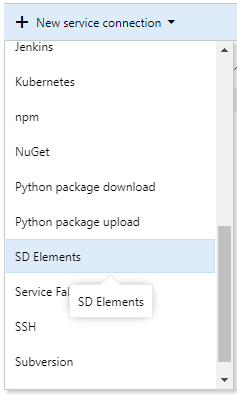
Enter the SD Elements instance URL as well as your APIv2 token. The APIv2 token can be found in SD Elements by visiting menu option "Your Name > API". Refer to the online documentation for more details.
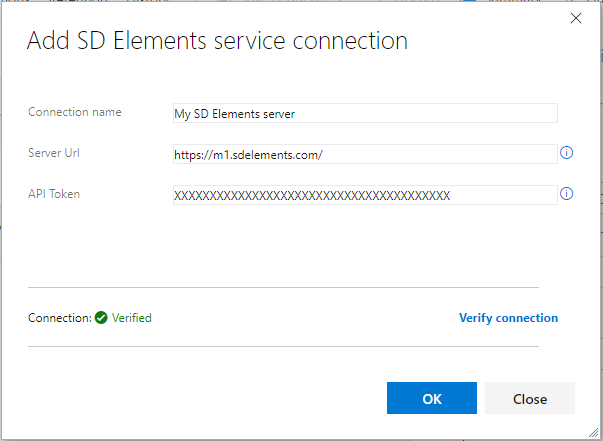
Add SD Elements Risk Policy Check to Pipeline
In your pipeline add a new task and select "SD Elements Risk Policy Check" from the "Build" list.
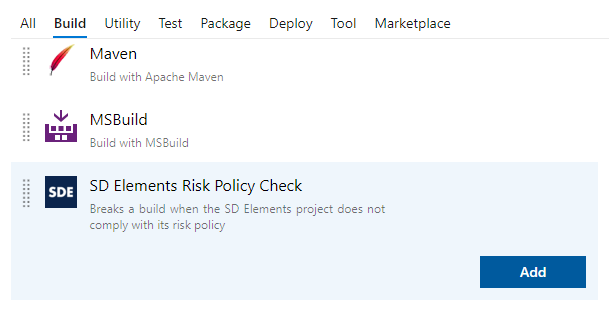
Select the task in the pipeline and enter the required fields,
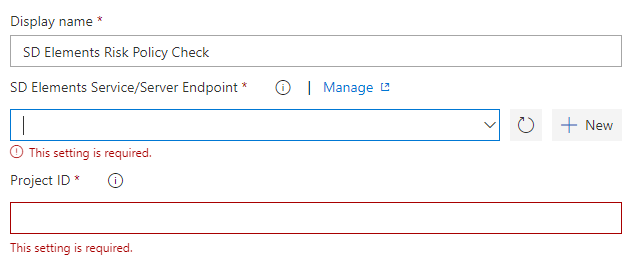
- Server Endpoint: Select the service endpoint defined earlier from the dropdown. Alternatively, a new endpoint can be created ad hoc, as well.
- Project ID: Enter the ID of the SD Elements project. The Project ID is identified on the "Overview" page.
For example, the Project ID is 2455 in the screenshot below:
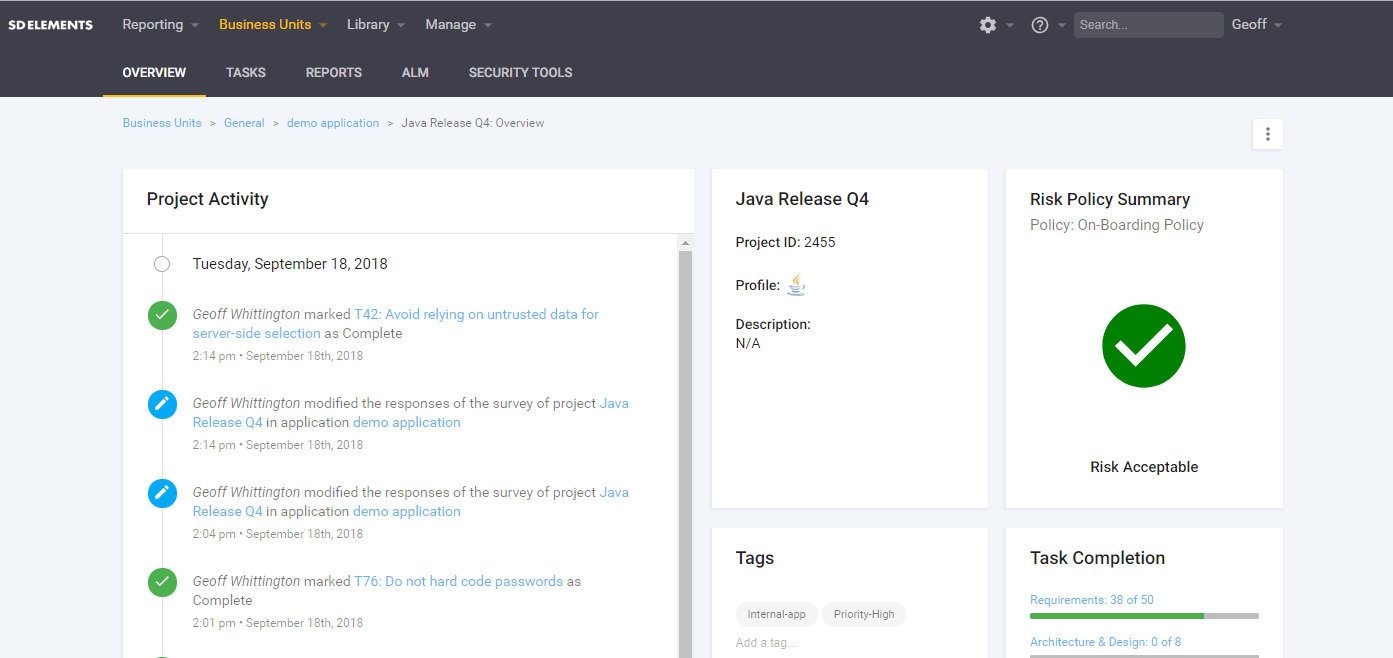
Save your pipeline changes.
SD Elements Risk Policy Check build behavior
The SD Elements Risk Policy Check task succeeds or fails according to its Risk policy compliance status.
Build Pass
The task succeeds when the SD Elements project meets its Risk policy requirements.

Build Failure
The task fails when the SD Elements project does not meets its Risk policy requirements.

- A link to the SD Elements project is included in the error message: open the URL to learn how to bring the project into compliance.